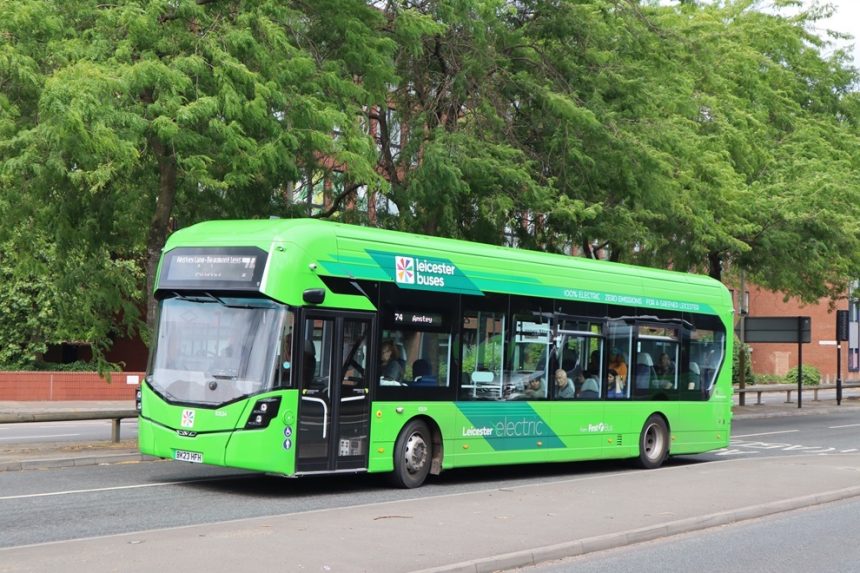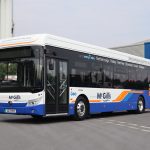Infrastructure and other work to support zero-emission in the coach, bus and HGV sectors should be “joined up” to best enable the shift, speakers involved in decarbonisation of the passenger industry told delegates in a Confederation of Passenger Transport conference session considering green growth on 23 January.
That includes prioritisation of bus services in green industrial strategy and recognising them as “a fantastic investment,” says Institute for Public Policy Research North Senior Research Fellow Marcus Johns.
He adds that infrastructure, skills and strategic connections should be seen holistically, and that investment should be ramped up to deliver certainty on those.
First Bus Decarbonisation Programme Director Faizan Ahmad agrees, noting that high-power charging networks for large battery-electric vehicles should be the subject of coherent and connected thinking.
Mr Ahmad points to work by the group for battery-electric coaches, HGVs and vans to use its depot infrastructure. But he adds that decarbonisation “is not just about the new and shiny” and notes that First Bus will have 40 repowered battery-electrics in service by the end of H1 2025.
He adds that the operator is exploring whether it can bring depot charger operation and maintenance in house, and notes that deployment of zero-emission buses can help to make recruitment easier.
Evidence of that has been seen Aberdeen, where First runs both battery-electric and hydrogen fuel cell-electric buses. It indicates that some people see the zero-emission sphere as a solid career choice and one that is secure.
On SME concerns about decarbonisation and how it will impact those businesses, Zenobē Director of Development (EV Fleet) Julia Meek acknowledges that while the TCO of zero-emission vehicles is lower, there is a particular difficulty with infrastructure and up-front cost, with finance more expensive.
However, Zenobē believes that grants towards those vehicles should be on a per-mile basis via BSOG and its devolved equivalents. Funding should thus not necessarily go directly to the purchase of zero-emission buses, she suggests.
Maximising certainty around investment in such vehicles is a further point of advocacy by Zenobē, and it is also working with Ofgem on policies to support fleet electrification at an increased pace.
Panellists agree that hydrogen is likely to have a minor role in bus decarbonisation. Hydrogen examples with First Aberdeen are often inactive due to poor fuel supply and battery-electric will likely meet almost all of the group’s future needs, says Mr Ahmad.
Ms Meek adds an expectation that battery technology and energy density will ultimately allow those vehicles to match the zero-emission range that is currently the preserve of hydrogen power.
Mr Johns says similar. IPPR sees “very limited” use cases for hydrogen in buses and believes that electrification “should be the clear goal.” In addition to advancing battery technology, he highlights questions over the resilience of the supply chain around hydrogen.
In further notable comments, Mr Johns adds that even long-distance usage cases – including coaches – will follow the battery route when transport decarbonisation reaches to them.



























